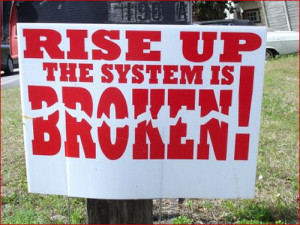
Ontario Landlords Filing Applications at the LTB Will See Fees Rise in 2017
Experienced Ontario landlords know one of the keys to success in this industry is having strong, mutually respectful relationships with your tenants.
You provide a terrific, safe, fairly priced rental property to your tenants. You are a service-oriented landlord and that means when things need fixing or issues arise, you make it a priority and get things fixed fast. When you fix these issues you cooperate with your tenant to make sure both sides are satisfied with the solution.
Great Tenants
In return your tenants take care of the rental home and pay their rent on time. When they want to move out to buy their own home or move to another area they provide proper notice and allow showings according to the Residential Tenancies Act. When you do the showings the tenants are cooperative and keep the place clean. (Many of our most successful members even have tenants recommend their rentals to new prospective tenants during showings).
It’s a win-win situation and it’s what everyone wants.
In Reality Sometimes Things Go Wrong
It happens.
Let’s face it, the LTB is very busy and this is why it can take such a long time to get a Hearing date.
Some landlords don’t fulfill their responsibilities. Important repairs are neglected and safety issues not taken as seriously as they need to be taken.
Other times your tenants don’t fulfill their end of the deal.
We’ve had landlords write about rent being consistently paid late. Or sometimes they don’t get paid at all by their tenants. There are even examples of tenants who make big damages to the property beyond normal wear and tear.
One of the most common complaints our members have discussed recently have been from landlords owning multiplex units. They have to deal with tenants arguing with other tenants in the building and get drawn into it.
Ontario Landlord and Tenant Board (LTB)
When these type of issues happen landlords and tenants can go to the LTB to try to resolve the issues.
We’ve written before about the Landlord and Tenant Board and the longer you are a landlord the greater the chance that at some point you will need to go to a Hearing.
Landlord and Tenant Board (LTB) Application Fees Are Increasing January 16, 2017
There are going to be some higher prices for landlords filing applications beginning on January 16, 2017. There are also going to be some increases for a couple of tenant applications.
The LTB wants it to be known that fees are going up around 10% and haven’t been increased since back in 2009. You can see the new 2017 fees versus the older ones here.
Fee Waivers For Those On a Low Income
If you are on a low income you can make a request for a ‘fee waiver’. The threshold to get this fee waiver has increased and you can find more information here.
Discounts With E-Filing
Four of the most common landlord and tenant applications can be filed through the LTB e-filing system. These forms make up about eighty percent of the applications filed.
These applications are:
(a) Form L1 – Application to Evict a Tenant for Non-Payment of Rent and to Collect the Rent the Tenant Owes
(b) Form L2 – Application to End a Tenancy and Evict a Tenant
(c) Form T2 – Application about Tenant Rights
(d) Form T6 – Tenant Application about Maintenance
Be aware of the discount if you are e-filing one of these.
Landlords and the Landlord Tenant Board 2017
Successful Ontario landlords know the importance of choosing good tenants and developing a mutually respectful relationship. Just as good landlords appreciate good tenants, good tenants also are looking for professional and knowledgeable landlords.
If you do go to the LTB make sure you are aware of the process and that includes knowing how much the fees are.








